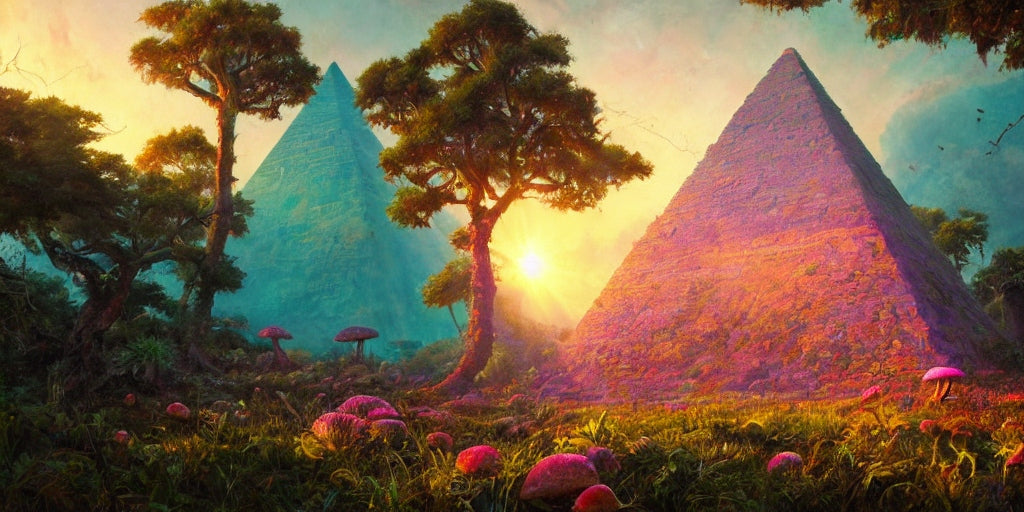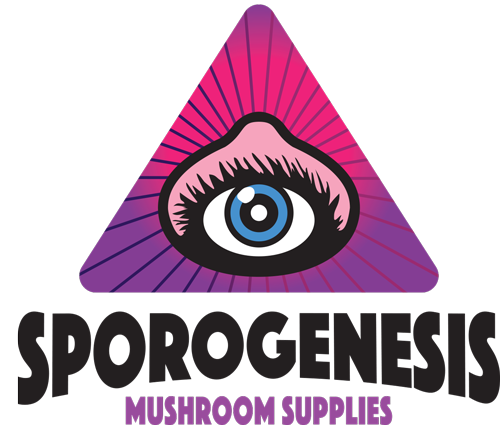
The Fascinating World of Psychedelic Mushrooms
Share
Mushrooms have long been used for medicinal and spiritual purposes, and among the most intriguing group of mushrooms are those with psychedelic properties. Psychedelic mushrooms, also known as magic mushrooms, contain psychoactive compounds such as psilocybin and psilocin that can cause changes in perception, mood, and thought.
The use of psychedelic mushrooms in rituals and religious ceremonies can be traced back to ancient civilizations in Mesoamerica, where the Aztecs and Maya used mushrooms in religious ceremonies and divination practices. The famous mushroom stone statues of Mexico and Central America, which date back to 1000 BC, are thought to depict the use of psychoactive mushrooms in religious rituals. The Aztecs referred to the mushrooms as "teonanácatl" or "god's flesh" and believed them to be a powerful sacrament that could connect them to the divine.
In the 1950s and 60s, Westerners became interested in the psychedelic properties of mushrooms and began using them in therapeutic and spiritual contexts. Notable figures such as R. Gordon Wasson, a prominent mycologist, and Timothy Leary, a psychologist and advocate for the use of psychedelics, helped to popularize the use of magic mushrooms. They conducted research on the effects of psychedelics and their potential therapeutic benefits, which led to widespread experimentation with the mushrooms.
Psilocybin, the main psychoactive compound in magic mushrooms, is a serotonin receptor agonist, meaning it mimics the action of the neurotransmitter serotonin in the brain. When psilocybin is ingested, it is converted to psilocin, which binds to serotonin receptors and causes changes in brain activity. This leads to the characteristic alterations in perception, thought, and emotion associated with psychedelic experiences.
Recent research has shown that psilocybin may have therapeutic potential for a variety of mental health conditions, including depression, anxiety, and PTSD. Studies have found that a single dose of psilocybin can lead to significant and long-lasting reductions in symptoms, with some participants reporting a complete remission of their condition. In addition to its therapeutic potential, psychedelic mushrooms have also been used for personal growth and spiritual exploration. Many people report profound experiences of connectedness, transcendence, and a sense of the sacred during psychedelic experiences. These experiences can lead to lasting positive changes in attitudes, beliefs, and behaviors, such as increased empathy, creativity, and a sense of purpose.
The therapeutic potential of psychedelic mushrooms has led to renewed interest in research on the subject. However, it's important to note that psychedelic mushrooms are classed as Class A drugs in the UK and possession, distribution, or cultivation can result in criminal charges. Therefore, it's important to approach psychedelic experiences with caution and to have a supportive and safe environment. It's always recommended to have professional guidance and support before taking any psychedelics.
In conclusion, the world of psychedelic mushrooms is a fascinating and complex one, with a rich history of traditional use and exciting new research on its therapeutic potential. While more research is needed to fully understand the effects and potential benefits of these mushrooms, it's clear that they have much to offer in terms of both healing and personal growth. The therapeutic benefits of psychedelics have been demonstrated in clinical settings, and the potential of these substances to improve the lives of those suffering from mental health issues is undeniable. It's important that research on psychedelics continues, so that we can fully understand the potential benefits of these substances and make informed decisions about their use.
